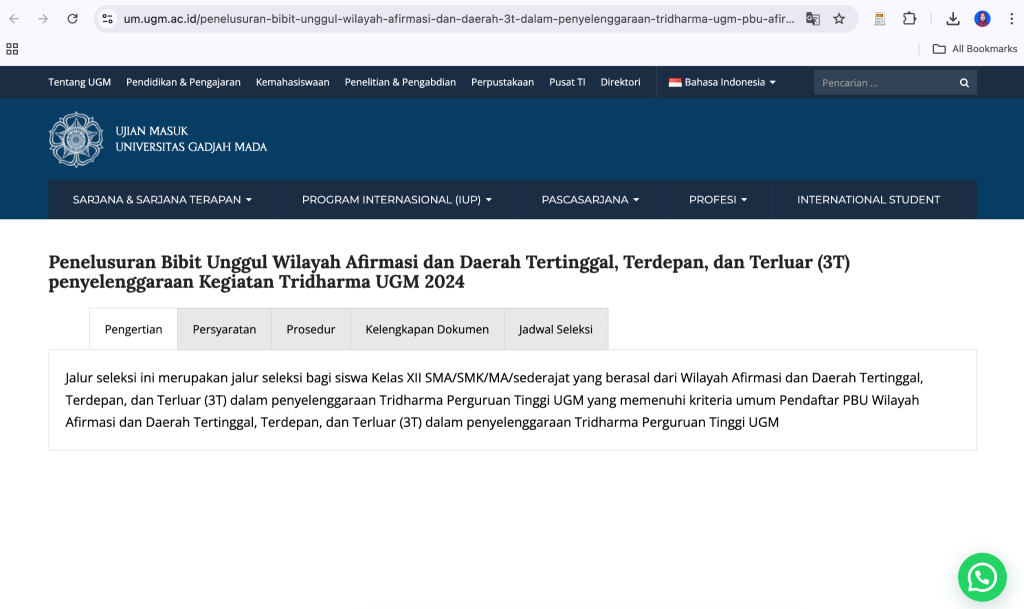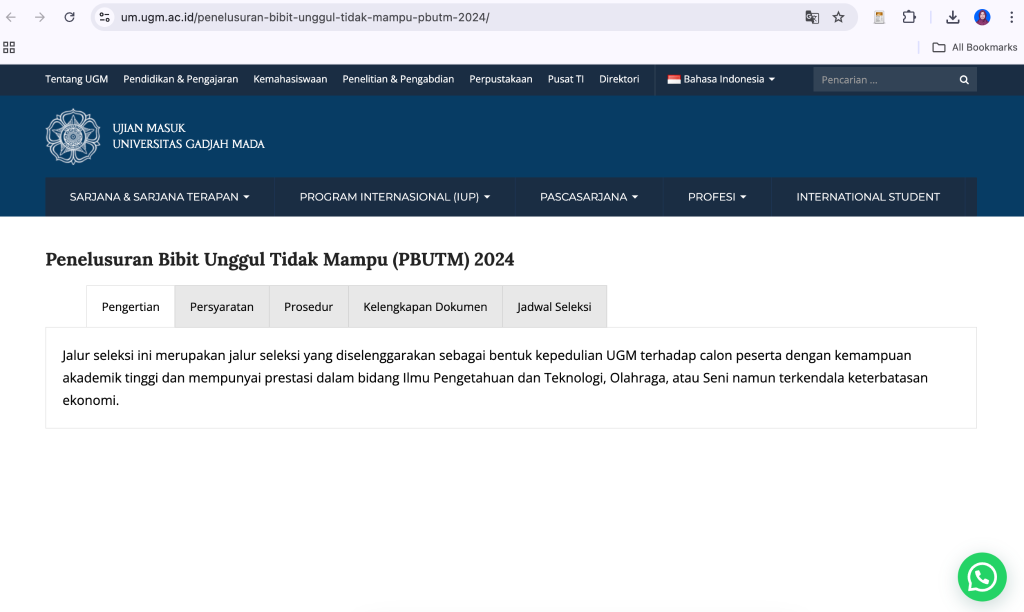UGM’s database system tracks applications and admissions of underrepresented groups, including women, ethnic minorities, low-income students, LGBT, disabled, and refugee students. It monitors their progress from admission to graduation, supporting inclusivity through special pathways and programs that support academic success.
The um.ugm.ac.id. database system tracks applications and admissions of prospective students, including applications made by women and underrepresented groups. Prospective students are required to state information such as their gender and family income and declare if they have disability and/or minority status (from affirmative regions, specifically applicants from underdeveloped, frontier, and outermost (3T) areas in Indonesia). After registering, this data is transferred to the simaster.ugm.ac.id application system to monitor current students and alumni. UGM can use this database to measure the progress of women and underrepresented groups in terms of admission rates, academic performance during their studies, and graduation rates.
This measurement and tracking system is accommodated in Rector’s Regulation Number 11 Year 2019 Article 9, which specifies the tracking of student applications from affirmative students and students from Papua Province.
Prospective students from underrepresented (and potentially underrepresented groups) can also be traced by seeing those who apply to enter the university through the special admission pathway. This pathway is known as the Selection of Outstanding Talent in Affirmative Regions and Underdeveloped, Frontier, and Outermost (3T) Areas.

UGM also has a special admission pathway for the Selection of Outstanding Talent from Economically Disadvantaged Backgrounds (PBUTM). This admission pathway is for candidates with high academic potential and achievements in the fields of Science and Technology, Sports, or Arts but faces economic limitations.

To guarantee a seamless admission process and successful continuation of studies, the Directorate of Student Affairs organises orientation sessions for affirmative scholarship recipients through the Sub Directorate of Student Welfare. These sessions aim to enhance the awardees’ communication skills and cultural awareness. Key topics include the importance of mastering Indonesian and English for academic success, adapting to local culture without losing one’s identity, and fostering solidarity and motivation.
References:
- Registration for student admissions
- Tracking system to measure women and underrepresented groups application and admission
- Simaster application system
- Rector’s Regulation Number 11 Year 2019
- Selection of Outstanding Talent in Affirmative Regions and Underdeveloped, Frontier, and Outermost (3T) Areas
- Selection of Outstanding Talent from Economically Disadvantaged Backgrounds
- Orientation sessions for affirmative scholarship recipients
